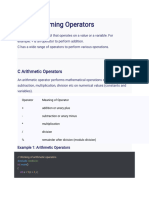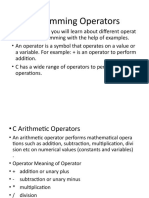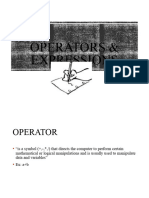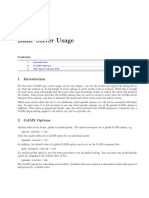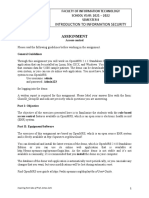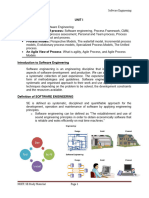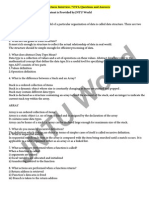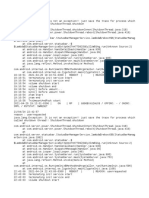0% found this document useful (0 votes)
18 views20 pagesOperators
The document provides an overview of various operators in C programming, including arithmetic, conditional, and bitwise operators. It explains the functionality and usage of different types of operators such as arithmetic, increment/decrement, assignment, relational, and logical operators, along with examples. Additionally, it covers operator precedence and the importance of parentheses in expressions to ensure correct evaluation.
Uploaded by
hassan01754Copyright
© © All Rights Reserved
We take content rights seriously. If you suspect this is your content, claim it here.
Available Formats
Download as PDF, TXT or read online on Scribd
0% found this document useful (0 votes)
18 views20 pagesOperators
The document provides an overview of various operators in C programming, including arithmetic, conditional, and bitwise operators. It explains the functionality and usage of different types of operators such as arithmetic, increment/decrement, assignment, relational, and logical operators, along with examples. Additionally, it covers operator precedence and the importance of parentheses in expressions to ensure correct evaluation.
Uploaded by
hassan01754Copyright
© © All Rights Reserved
We take content rights seriously. If you suspect this is your content, claim it here.
Available Formats
Download as PDF, TXT or read online on Scribd
/ 20










